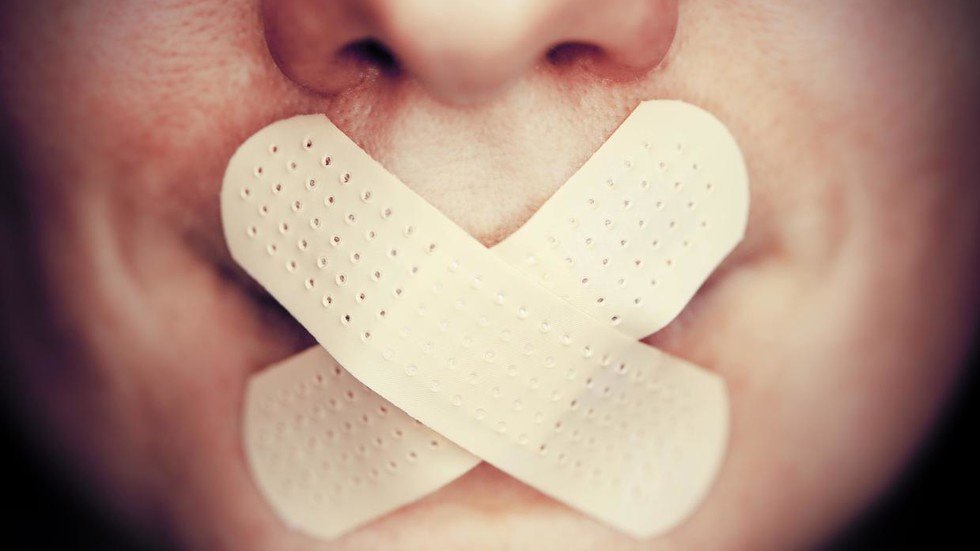This should give an idea as to how far down the rabbit hole the German political environment has gone....from June 2021 (the latest I could find at the moment...)
Posted for fair use.......
A majority of German citizens believe that freedom of expression is in danger, the latest poll shows. ‘Patriotism’ and Islam were named among topics one should be particularly careful about.

www.rt.com
16 Jun, 2021 20:27
HomeWorld News
Most Germans say freedom of speech is in jeopardy, many name Islam and patriotism among topics they cannot speak freely about
A majority of German citizens believe that freedom of expression is in danger, the latest poll shows. ‘Patriotism’ and Islam were named among topics one should be particularly careful about.
Only 45% of Germans still believe they can express their political opinion freely, says a survey conducted by the Allensbach Institute for Demoscopy – one of Germany’s oldest and most respectable polling agencies.
That is the lowest figure since 1953, when the institute started conducting such polls. Just a few years ago, two-thirds of Germans believed that nothing stops them from expressing their opinion freely.
Most believe that their freedom of expression is in danger, while 44% feel one had better be careful about what one says, according to the survey
published in Germany’s FAZ newspaper on Wednesday.
Almost 60% of respondents named Islam as an issue to be particularly reserved about.
“Patriotism” was named as another such controversial topic by 28% of Germans. Another issue many respondents reported feeling uneasy about was women’s rights, since 19% of the respondents named it a taboo topic.
Some other topics such as gender-neutral language or words considered to be politically incorrect were also perceived as sensitive, the Tagesspiegel newspaper
said.
Supporters of various political parties also assessed the situation with freedom of speech in Germany differently. Those backing the left-leaning Green Party described it quite positively, as did the supporters of Chancellor Angela Merkel’s Christian Democratic Union (CDU).
Supporters of all other parties, including Merkel’s coalition partners – the Social Democrats – said they have to be rather cautious while expressing their opinions. Sympathizers of the right-wing Alternative for Germany (AfD) party were the least satisfied with the present situation, since only 12% of them said they could freely defend their opinions in public.
_____________________
From 2019.....
Posted for fair use.....
A survey conducted by the Institut für Demoskopie Allensbach and published in the Frankfurter Allgemeine Zeitung, demonstrated that only 18% of those questioned felt they could express themselves freely in a public space. A dismal number for a western democracy, but what might be even more shock

www.worldatlarge.news
May 30
Only 18% Of Germans Feel They Can Exercise Free Speech In Public - 34% Among Friends
Andy Corbley
A
survey conducted by the Institut für Demoskopie Allensbach and published in the Frankfurter Allgemeine Zeitung, demonstrated that only 18% of those questioned felt they could express themselves freely in a public space.
A dismal number for a western democracy, but what might be even more shocking is that only
31% of those questioned reported they could speak freely and openly, even regarding controversial topics,
among friends.
A mere 17% of people felt comfortable expressing their view on the internet.
The survey also found that two-thirds of participants considered the politically-correct demands on speech so severe that it actually impeded their ability to communicate, especially when it came to interacting with foreigners, immigrants, and German citizens borne of immigrant parents.
Democratic Censorship
In the experiences of 34% of those polled, freedom of speech in Germany is confined to only the smallest of social circles - close friends or family members. 41% claimed over-exaggerated political correctness was the culprit for the worsening protections on speech.
Existing hate speech and other censorship laws in Germany have also extended to the internet. In late 2016, the German government wanted to pass legislation that would fine Facebook 500,000 euros for every story flagged as fake news which remained on the internet platform for more than 24 hours after being reported and investigated.
In the book which saw him win the Nobel Prize for Literature, The Gulag Archipelago, Russian military officer turned political prisoner and author, Alexander Solzhenitsyn outlines in the first chapter titled “Arrest” the process with which the Soviets broke down the ability of the Russian intelligentsia to speak freely.
Along with laws against dissent and the monopoly on power to enforce them, the Bolsheviks main weapon was fear and uncertainty. Famously, Solzhenitsyn says 1 of every 3 members of the ordinary Russia family were paid government informants, thereby creating a curtain of fear under which there was no place to safely speak out against Stalin’s terrible regime.
German citizens are not being shot dead by commissars, but on the other hand, if the threat of losing one’s job or becoming ostracized as a public voice prevents the exercise of free speech, then one would think dangerous road is being tread.
On the other hand, there are some well-supported politicians who consider this the first step towards a freer society.
During a visit to the U.S. in April of last year, French President Emmanuel Macron suggested that the United States should follow the European model for hate speech and fake news, claiming that the erosion of our democracies comes first and foremost at the hands of “corrupt information”.
From a sociological standpoint however, the German people seem to feel they can’t express themselves in most situations, which corrupts information in a different way.


